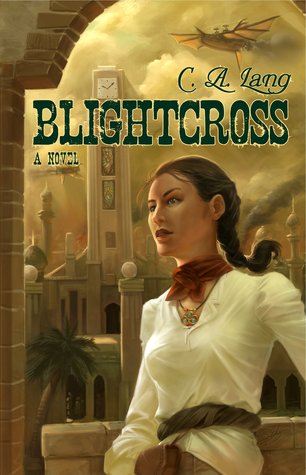
I was sitting at a Starbucks working on a writing workshop I'll be presenting this summer and somehow staring at a man's gigantic belt buckle led me to this post. At the time, I was writing a section on prehistoric events in regard to fantasy worldbuilding. Note: I actually don't normally write at a Starbucks, but found myself out of town and with some time to kill. Just sayin'.
Prehistoric traumatic events work differently to recorded ones. In psychoanalytic terms, this traumatic kernel repeats itself throughout different civilizations. Nobody even knows what the original trauma was, whether a flood or meteor strike, and it gives rise to all sorts of repetitious, collectively-subconscious behaviours and ideas. Over thousands of years this traumatic kernel ends up sublimated, repressed, and disguised in mythology, religion, and language.
This is likely raising the hackles of hard SF writers and those with psych degrees, because psychoanalysis isn't all that popular right now. Neither is Velikovsky, and I'm apparently going that way with my thinking. I am not interested in hard SF nitpicking or the clinical value of psychoanalysis. I mention it because it's a hell of a lot of fun to use as a tool for writing fiction.
There is value to the way psychoanalysis approaches trauma. And when you're trying to hash out deep motivations for your characters, sometimes a little Lacan is the way to go. And who is to say Velikovsky wasn't correct about the psychological end of his catastrophic theory? Just because he was probably wrong about his scientific claims doesn't mean his ideas about the human unconscious are just as wrong. If something catastrophic were to happen with humans around--especially ones who lacked science--it would result in a severe tear in their understanding of the world. They would attempt to symbolize it and continually fail and seek to experience it again and assimilate it somehow . . . at least according to my basic understanding of psychoanalysis. That is the most interesting part of his theories. Trying to bring physics into it based on human psychology is silly, but as Leonard Cohen might say, that don't make it junk.
Blightcross relies on much of this psychological line of thinking. I used it for everything from Capra's occasional sketchiness to the mythology surrounding that world's source of oil, which ultimately is tied with one of that world's major religions. This was a huge part of my choice to write dieselpunk. I know it's all about the costumes and emphasizing one particular technology, but with airplanes and guns must come a shift in psychology as well. So in this novel, not only did I use psychology as a tool for my worldbuilding, but also the development of individual characters, and society as a whole. For me, dieselpunk fantasy is a way to explore the traumatic effects of humankind's first experience with the global genocide that guns and oil make possible. This kind of subjective state doesn't and likely can't exist in traditional fantasy worlds.

C. A. Lang is a product of Nelson, British Columbia, and it shows. Growing up around Victorian architecture likely had something to do with his appreciation of steampunk, although we’re not quite sure why he felt the need to ditch the steam engines and go all internal-combustion on the genre. He has settled in Kelowna, B.C., where sometimes he can be found abusing a gigantic jazz guitar in public, hanging around certain wineries, and running obscene distances. (http://petropunk.wordpress.com)

Blightcross by C.A. Lang
Genre: dieselpunk
About Blightcross:
In a world rebuilding after global mechanized war, chaos and ethnic tensions rule.Source: Info in the About Blightcross was taken from GoodReads at http://www.goodreads.com/book/show/13746640-blightcross on 21/05/2012.
City-states like Blightcross prosper under dictatorships built upon oil production. Refugees flock to the city-state to find work in the massive oil refineries. The black blood of Blightcross is replacing vihs-draaf, the magic of the Ehzeri people, but magic hasn't entirely disappeared...yet.
For fugitive soldier and thief Capra Jorassian, Blightcross is an opportunity to earn enough money for her freedom. Stealing an enchanted painting from the dictator's collection is nothing new. But the simple heist gets complicated quickly when Capra's childhood friend shows up, bent on bringing her back for court martial. Then her eccentric employer, the creator of the painting, is kidnapped, throwing Capra into a struggle for the survival of Blightcross, with only her enemies as allies.
Till Sevari, the mad dictator of Blightcross, wants the secrets of the painting, and he'll do anything to get them. But when the deadly forces within the painting spiral out of his control, Capra is the only one who can defeat them - by finding a power just as deadly, hidden beneath the lies of her own culture...
Blightcross breaks the boundaries of steampunk, using fantasy to explore the world of post-colonialism and the greed of oil dependent cultures.
Buy Link(s):



Thank you for the guest post and information on the book. Sounds like an interesting read after the post. :) Thank you!
ReplyDelete